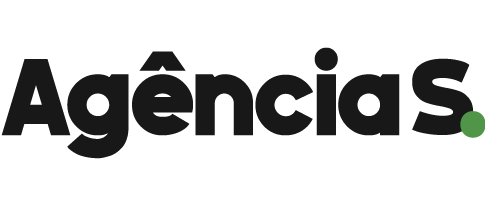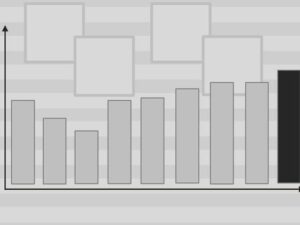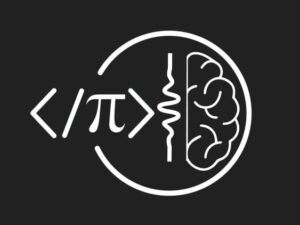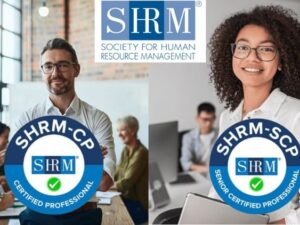Pharma Drug Regulatory Affairs Certificate Course - DRA 2025
- Descrição
- Currículo
- FAQ
- Revisões
Are you looking for Regulatory affairs Jobs in 2024 and want to make a career in Pharmaceutical Regulatory affairs?
Answer:
If you are looking for Pharma Regulatory affairs course to start career as Regulatory Professional without paying huge amount or money then you are on right platform with best pilot.
This updated course is for starting career and growing in existing profession as in Regulatory affairs with certificate of completion.
Complete the course as per your free time as life time access is available.
Course Details:
The Pharmaceutical industry discovers, develops, produces, and markets drugs or pharmaceutical drugs for use as medications to be administered to patients, with the aim to cure them, vaccinate them, or alleviate the symptoms. Pharmaceutical companies may deal in generic or brand medications and medical devices
Regulatory Affairs plays a crucial role in the pharmaceutical industry and is involved in all stages of drug development and also after drug approval and marketing. …
Pharmaceutical companies use all the data accumulated during discovery and development stages in order to register the drug and thus market the drug.
So, this online course helps Pharmacy Students and Professionals to build their knowledge and skills towards career in Regulatory Affairs.
Regulatory course prepares students to be skilled in the field of global regulatory affairs, and enables existing regulatory affairs professionals to refine and update their knowledge of global regulatory affairs statutes and practices.
Prepare to play a pivotal role in managing the regulatory activities necessary to bring drugs and medical products to market.
Contents of this course :-
A. Basics of Regulatory affairs
1. Basic Regulatory Introduction
2. Career and opportunities in RA
3. Objectives in RA Profession
4. Websites and Usage
5. Intoduction to ICH Guidelines
6. Basic general information about DMF (Drug Master File)
7. DMF preparation and submission
B. CTD & eCTD
8. Module 1
9. Module 2
10. Module 3
11. Module 4
12. Module 5
13. eCTD software demo and eValidation
C. Types of Application
14. IND (Investigational New Drug Application)
15. NDA (New Drug Application)
16. ANDA (Abbreviated New Drug Application)
D. Registration and Submission
17. Introduction to ESG Gateway
18. Overview of Registration Process
19. FDA ESG web interface and electronic submission
# Complimentary Quizes (Question & Answer)
Eligibility Requirements
Education and experience:
-
A minimum of a baccalaureate or equivalent Lifescience subjects OR
-
Bachelors of Pharmacy, Masters of Pharmacy, Ph.D In Pharmacy, Industrial Professional
-
A master’s degree of regulatory or regulatory-related experience; OR
-
A doctorate degree (e.g., medical, dental degree, PharmD, PhD, ScD, JD) and at least one year regulatory or regulatory-related experience
-
No Prerequisite required only need Curiosity over new learnings
Regulatory Certification Benefits for Professionals
Anyone who works in the life science arena should consider the RAC program as an educational supplement to one’s current work environment. As identified in the RAC Certification, earning a RAC is useful in a variety of professional settings, within regulatory agencies, government and inter-governmental bodies, industry, consultancies, professional organizations, healthcare facilities, research institutions and educational institutions around the world.
Confidence is a true benefit from adding the RAC to your signature line, as a regulatory professional.
Course is designed to cover all aspects of healthcare product regulations, compliance and standards, giving a global perspective on regulatory affairs. There are practice exams available online to help prepare.
Certification by a Regulatory Professional platform not only gives you confidence in forming your regulatory advisements but also inspires confidence in those working with you or for whom you work. There is recognition that, by pursuing a regulatory certification, you have studied the regulations in your particular regulatory product area and are well versed in these regulations as well as in other product categories.
The ability to pass an exam written by your peers in your specific area of regulatory responsibility affirms that regulatory professionals have a clear understanding of the core components within their specialty area.
In this Advanced RA course the Detailed Practical and Theoretical aspects of Regulatory affairs can be learned in this course.
Like :-
-
Basics of Regulatory affairs
-
ICH, DMF, ASMF, CTD, eCTD, CTD structure, 1-5 Modules of CTD.
-
Basic Demonstration of eCTD software & eValidator (Lorenz Docubridge) 21CFR complied.
-
Drug Product Development, Documents Required for filling.
-
Preperation & Submission of CTD, eCTD, DMF, Filling of Applications (IND, NDA, ANDA, BLA).
-
Other miscellaneous Aspects in RA.
Stringent GMPs are being followed for blood and its derivative as well as controlled manufacturing for Traditional Herbal Medicines, Cosmetics, Food and Dietary products which was otherwise differently a century before. Each regulatory system had faced certain circumstances which led to current well-defined controlled regulatory framework.
This course contains Commonly Asked Questions and Answers for interview that will help you while preparing for DRA interviews.
Last but not the least, this course also contains a bonus software demo entitled “General Demonstration and eValidation “ which will help you to shape your career in which the points that must be taken into consideration while Preparing and submission of Dossier are covered.
In this course, more than 42 informative videos are included and are designed in an easily digestible format and going to take you through step by step approach to understand Drug Regulatory Affairs and relevant activities. This course will help you to develop the ability to conduct regulatory intelligence and develop a regulatory strategic plan.
I believe “Quality improvement is a continuous and lifetime process”. Upon completion of this course, you will be a whole different professional with improved DRA skills and knowledge which will help you to garner more respect from your team members, managers, clients, or anyone with whom you are communicating/interacting.
-
1Course OverviewVídeo Aula
Course Overview
-
2Course ContentsVídeo Aula
In This Video we will see inshort about contents of course
-
3Introduction and Career Opportunities in Regulatory AffairsVídeo Aula
In this session we will learn about the career oportunities in Regulatory affairs.
Regulatory Affairs Specialists assist in obtaining and maintaining government approval for drugs, medical devices, nutritional products, and related materials. They are often employed by pharmaceutical, biotechnology, and medical device companies. They may also work in government or law.
Careers in Regulatory Affairs
There is a wide variety of careers in the regulatory affairs field. Regulatory professionals carry titles such as:
Regulatory affairs specialist
Regulatory affairs manager
Regulatory affairs director
Compliance specialist
Food safety inspector
Clinical research associate
Director of quality assurance
These regulatory professionals play a critical role in the development and distribution of medical technological advancements and disease-free food, improving people’s health and welfare around the world.
What do regulatory affairs professionals earn?
Much like the setting and scope of a regulatory job, regulatory salaries vary, depending on job function, previous regulatory experience, seniority, geographic market, and highest earned degree.
And as market demand has increased, employers are willing to pay more for the right level of skill. Since 1995, salaries across all regulatory professions have maintained a general upward trend, increasing by an average of 3.3 percent per year. As of 2016, the average yearly salary for regulatory professionals at all levels was $150,422.
According to the Regulatory Affairs Professional Society’s (RAPS) 2018 report, the national average total compensation for U.S.-based regulatory professionals by job level is:
Vice President: $256,500
Director: $189,000
Manager: $139,000
Project Manager: $128,000
Specialist: $123,000
Associate: $93,000
So Look for Course description & Look for see you in the class.
-
4Drugs@FDA Database InformationVídeo Aula
-
5Common Websites and UsageVídeo Aula
In this session we have seen about websites and their how to use during work in RA.
-
6ICH GuidelinesVídeo Aula
The International Council for Harmonisation of Technical Requirements for Pharmaceuticals for Human Use (ICH) is unique in bringing together the regulatory authorities and pharmaceutical industry to discuss scientific and technical aspects of pharmaceuticals and develop ICH guidelines.
Since its inception in 1990, ICH has gradually evolved, to respond to increasingly global developments in the pharmaceutical sector and these ICH guidelines are applied by a growing number of regulatory authorities. ICH's mission is to achieve greater harmonisation worldwide to ensure that safe, effective and high quality medicines are developed, and registered and maintained in the most resource efficient manner whilst meeting high standards
In this session we have seen about Basics consepts in ICH guidlines.
-
7Literature SurveyVídeo Aula
Literature survey required for both Researcher and RA professionals during there work.
In this session students will learn about online literatures. How to use websites and which information is available on online for Drug development of Pharmacetical products and Regulatory Compliance.
-
8General QuizQuestionário
-
9Drug Master FileVídeo Aula
DMF stands for Drug Master File which contains confidential information related to the manufacturing, control or chemistry of the product.
US DMF filing is the provision made by the US FDA to maintain the confidentiality of the information in the DMF Filing. The Manufacturer of the Drug, excipient, or packaging material can directly submit the product related confidential information to the FDA without disclosing the information to their customer. However, the manufacturer may have to disclose parts of the DMF such as product specifications and general information to their customer, since such information is mandatory for product development and quality control related activities.
Facts about FDA DMF
DMF filing is not mandatory
DMF filing is the provision to submit the information directly to FDA without disclosing the information to your customer.
DMFs are neither approved nor disapproved. FDA reviews the DMF against drug applications in which those DMFs are referred.
FDA DMF number does not constitute FDA approval
Drug Master File holders must submit an amendment if there are any changes in the DMF and submit a report annually.
FDAbasics offer services for DMF filing services including DMF amendments and annual reports.
-
10Difference between DMFs and ApplicationsVídeo Aula
Students learned about Difference between Drug Master File and Various Application.
-
11Submission of DMFVídeo Aula
Students learned about submission of DMF. Also closing of DMF
-
12Drug Master File QuizQuestionário
-
13Module - 1 Administrative (Region Specific)Vídeo Aula
Module 1 of the CTD describes the administrative information and prescribing information (for example, the application form, the proposed product information and labelling)
Advantages of the eCTD structure:
Reviewers are already familiar with the content and document standards
Local affiliates can review updates in real-time
FDA reviewers can review faster and more efficiently, shortening time to approval
Handling, managing, and archiving trial and document-essential information is less time-consuming
Documents are easily accessible via search and tracking
The risk of missing or duplicated documents is minimized
-
14Module - 2 (Summary & Overview)Vídeo Aula
Module 2 contains the CTD overviews and sum- maries. It starts with a general introduction to the. drug, including its pharmacological class, mode of. action, and proposed clinical use.
-
15Module -3 (Quality) Drug SubstanceVídeo Aula
CTD Module 3 is the section of the common technical document (CTD) regulatory submissions format that contains all the required quality information and data corresponding to the registration of a pharmaceutical product.
-
16Module -3 (Quality) Drug productVídeo Aula
-
17Module -3 (Quality) Drug productVídeo Aula
-
18Module -3 (Quality) Drug productVídeo Aula
-
19Stability StudyVídeo Aula
CTD Module 3 is well defined containing both drug substance (active ingredient) and drug product sections, with each containing required presentations of drug technical information, processes and key parameters, and various justification supported by qualification and validation studies.
This data and these reports provide the detailed evidence that a drug’s characteristics are well defined and well controlled, such that one can assure that the next lot produced is essentially the same as the last lot. Drug manufacture control and reproducibility is the essential message that Module 3 must convey if Agency reviewers are to conclude that a new drug application merits approval.
-
20Module 4 (Non-Clinical Study)Vídeo Aula
Module 4 describes the format and organisation of the nonclinical (pharmaco-toxicological) data relevant to the application
-
21Module 5 Clinical Safety reports Part - IVídeo Aula
Module 5 contains all of the clinical study report data needed to support the application and to
demonstrate that the generic drug product is bioequivalent to the RLD.
-
22Module 5 Clinical Safety reports Part - IIVídeo Aula
-
23eCTD StructureVídeo Aula
-
24Basic Demonstration of eCTD Software & eValidatorVídeo Aula
-
25Quiz for eCTD & CTD ModulesQuestionário
-
26New Drug Development: USFDA PerspectivesVídeo Aula
-
27Elements of drug developmentVídeo Aula
-
28What is New Drug?Vídeo Aula
-
29Insight on Non-clinical testingVídeo Aula
-
30Questions and Answers- Non-clinical studyVídeo Aula
-
31Planning and preparation for FDA MeetingsVídeo Aula
-
32CDER and IND Review ProcessVídeo Aula
-
33Overview on IND and FD&C ActVídeo Aula
-
34Updating of IND ApplicationVídeo Aula
-
35Quiz 4Questionário
General Quiz 4
-
36Part I (New Drug Development)Vídeo Aula
-
37NDA (Registration and Product lifecycle)Vídeo Aula
Guidance Documents for NDAs
Guidance documents represent the Agency's current thinking on a particular subject. These documents are prepared for FDA review staff and applicants/sponsors to provide guidelines to the processing, content, and evaluation/approval of applications and also to the design, production, manufacturing, and testing of regulated products. They also establish policies intended to achieve consistency in the Agency's regulatory approach and establish inspection and enforcement procedures. Because guidances are not regulations or laws, they are not enforceable, either through administrative actions or through the courts. An alternative approach may be used if such approach satisfies the requirements of the applicable statute, regulations, or both. For information on a specific guidance document, please contact the originating office.
-
38Abreviated New Drug Application (ANDA)Vídeo Aula
-
39Introduction to ESGVídeo Aula
-
40Overview of Registration ProcessVídeo Aula
-
41Letter of Non-Repudiation agreementVídeo Aula
-
42Obtaining digital certificateVídeo Aula
-
43Understand submission GuidelinesVídeo Aula
-
44Naming conventionsVídeo Aula
-
45FDA ESG WEB INTERFACE ELECTRONIC SUBMISSIONSVídeo Aula
-
46ESG ToolQuestionário
Multiple choice questions












